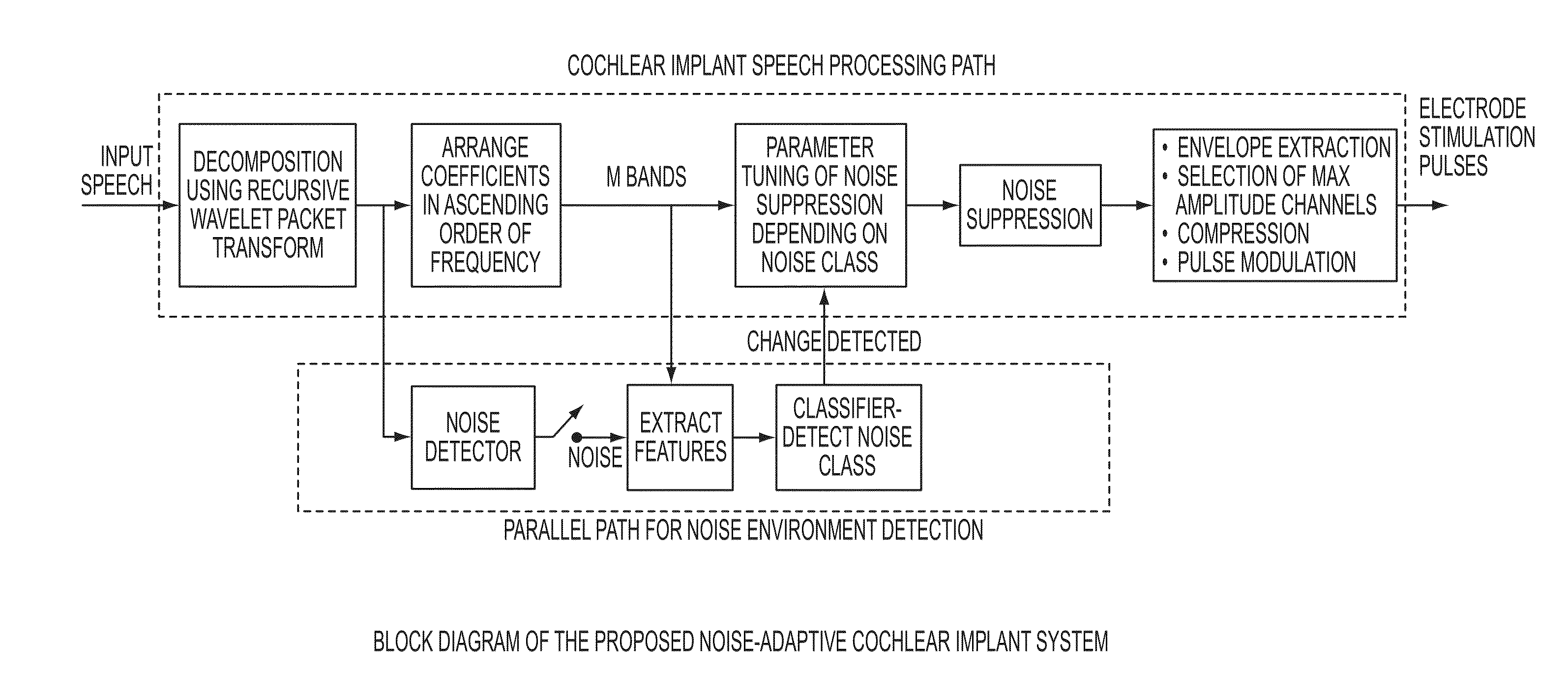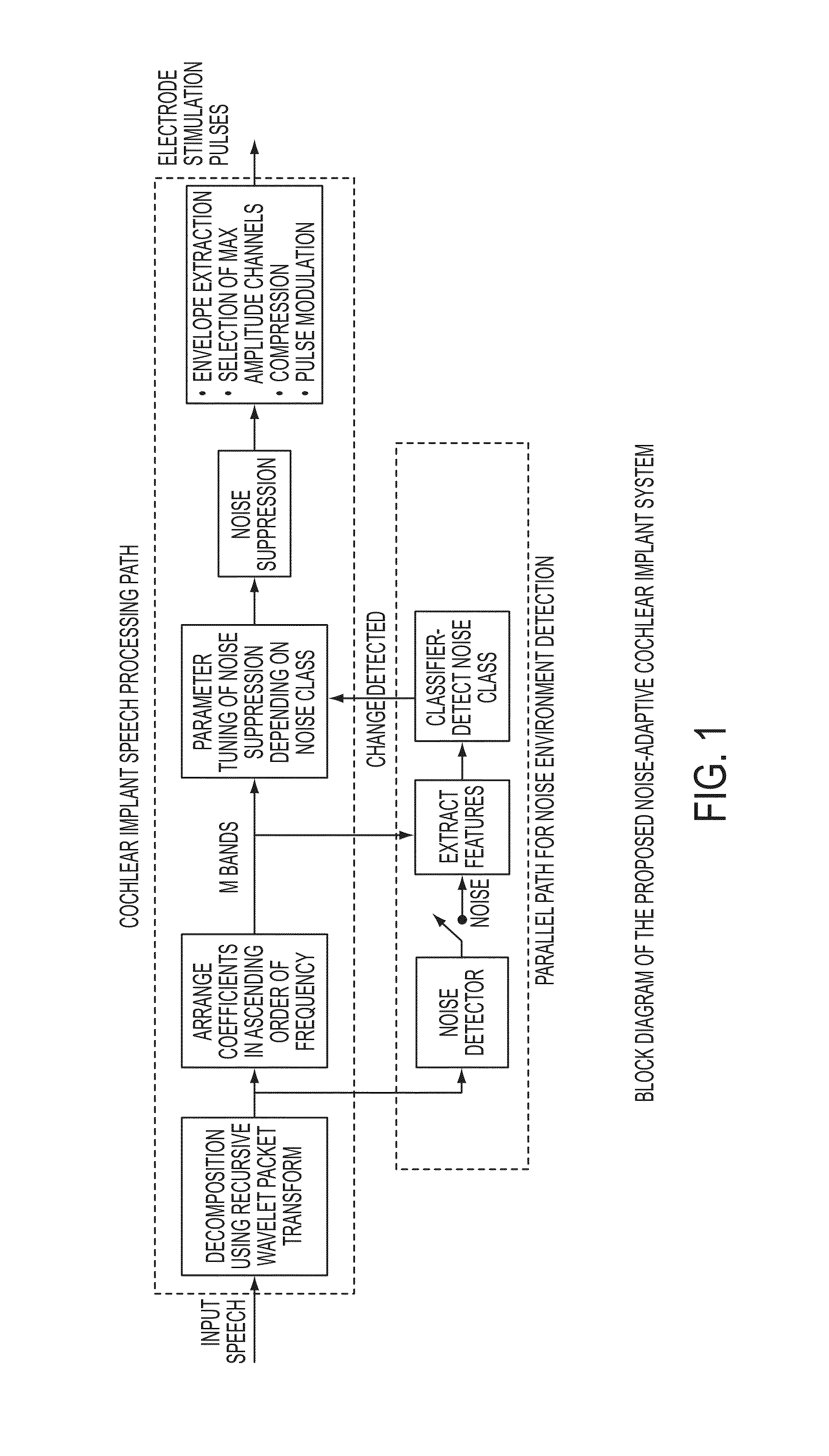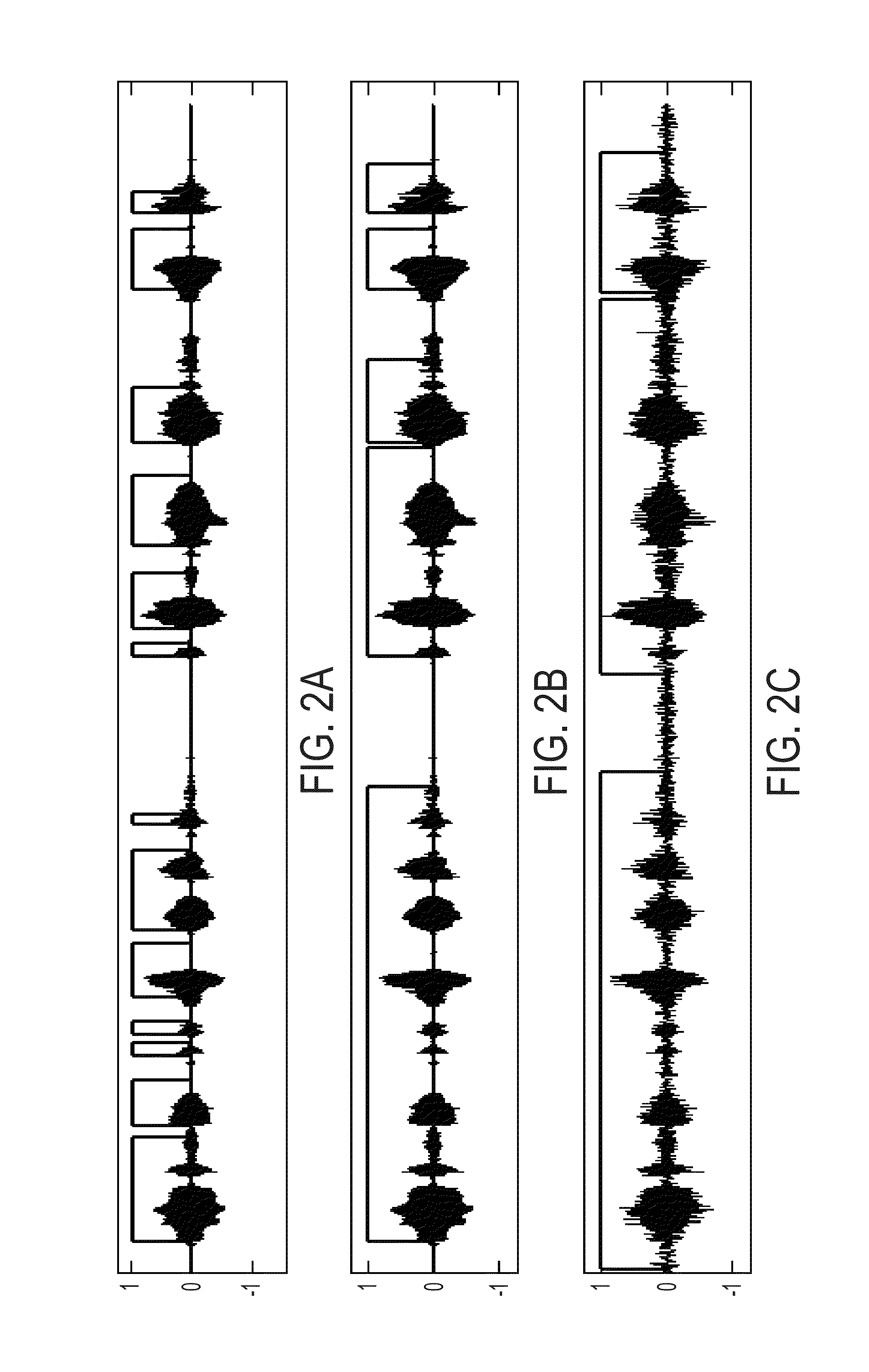Automated method of classifying and suppressing noise in hearing devices
a technology of automatic classification and suppression, applied in the field of hearing devices, can solve the problems of not being able to automatically tune the algorithms in order to achieve improved performance, and the performance of the hearing device remains a challenge, so as to improve improve the user experience, and improve the effect of the adaptation of the audio signal
- Summary
- Abstract
- Description
- Claims
- Application Information
AI Technical Summary
Benefits of technology
Problems solved by technology
Method used
Image
Examples
Embodiment Construction
[0016]An embodiment of the invention is directed to a hearing device system comprising a hearing device and a control device, the control device comprising: a signal interface that is adapted to receive data representing the acoustic environment external to the ear, and transmit an optimal algorithm to the hearing device; and a module for analyzing the data representing the acoustic environment external to the ear, and calculating the optimal algorithm for digital signal processing, the control device being operable to be responsive to the acoustic environment data transmitted thereto to automatically derive the optimal algorithm based upon the data and to transmit the optimal algorithm to the hearing device; wherein the hearing device is adapted to receive the optimal algorithm transmitted thereto by the control device and to perform speech enhancement in real time using the received optimal algorithm.
[0017]In an embodiment of the invention, the hearing device system further compri...
PUM
 Login to View More
Login to View More Abstract
Description
Claims
Application Information
 Login to View More
Login to View More - R&D
- Intellectual Property
- Life Sciences
- Materials
- Tech Scout
- Unparalleled Data Quality
- Higher Quality Content
- 60% Fewer Hallucinations
Browse by: Latest US Patents, China's latest patents, Technical Efficacy Thesaurus, Application Domain, Technology Topic, Popular Technical Reports.
© 2025 PatSnap. All rights reserved.Legal|Privacy policy|Modern Slavery Act Transparency Statement|Sitemap|About US| Contact US: help@patsnap.com



